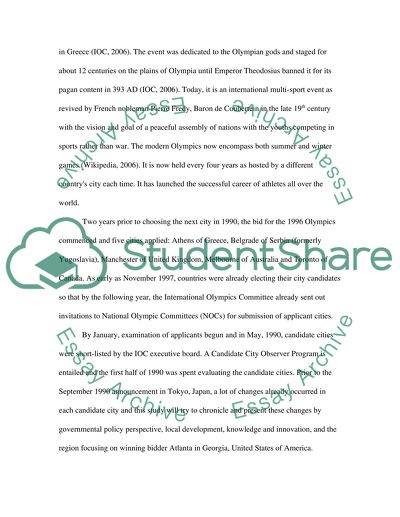Cite this document
(“The Impact of the Atlanta 1996 Summer Olympics Bid Case Study”, n.d.)
The Impact of the Atlanta 1996 Summer Olympics Bid Case Study. Retrieved from https://studentshare.org/sociology/1509994-the-impact-of-the-atlanta-1996-summer-olympics-bid
The Impact of the Atlanta 1996 Summer Olympics Bid Case Study. Retrieved from https://studentshare.org/sociology/1509994-the-impact-of-the-atlanta-1996-summer-olympics-bid
(The Impact of the Atlanta 1996 Summer Olympics Bid Case Study)
The Impact of the Atlanta 1996 Summer Olympics Bid Case Study. https://studentshare.org/sociology/1509994-the-impact-of-the-atlanta-1996-summer-olympics-bid.
The Impact of the Atlanta 1996 Summer Olympics Bid Case Study. https://studentshare.org/sociology/1509994-the-impact-of-the-atlanta-1996-summer-olympics-bid.
“The Impact of the Atlanta 1996 Summer Olympics Bid Case Study”, n.d. https://studentshare.org/sociology/1509994-the-impact-of-the-atlanta-1996-summer-olympics-bid.


